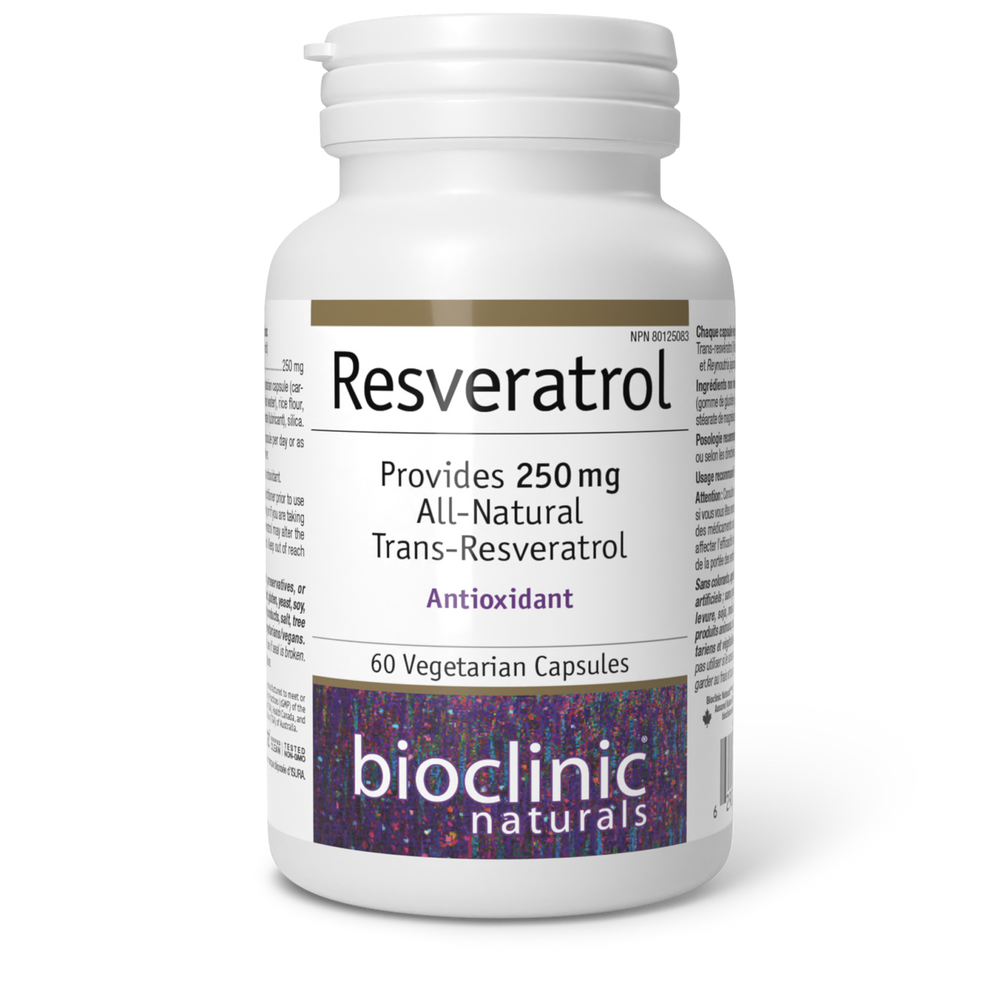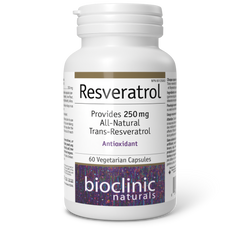

Resveratrol
- 44.99$
0.00$- 44.99$
- Unit price
- per
Description
x- Antioxidant
- Provides 250 mg of all-natural trans-resveratrol per serving
- Trans-resveratrol promotes cellular health and longevity through its powerful antioxidant effects.
- Activates Nrf2 and SIRT1, associated with cellular protection and healthy aging.
- Resveratrol is extracted from red grapes grown in the Okanagan Valley of British Columbia and Japanese knotweed.
- Suitable for vegans and vegetarians
Resveratrol is a naturally occurring polyphenol found in many plants, particularly grapes and peanuts. It is widely recognized as a potent antioxidant with multiple actions that promote cellular longevity and health. Resveratrol protects against oxidative stress both through direct antioxidant effects and through the activation of cellular pathways associated with antioxidant defense. This includes stimulation of the potent transcription factor, nuclear erythroid-related factor 2 (Nrf2), which increases the expression of multiple antioxidant enzymes associated with cardioprotective, neuroprotective, and healthy aging effects.
Resveratrol also activates the sirtuin SIRT1, a protein responsible for regulating many essential cellular functions, including DNA repair, mitochondrial biogenesis, autophagy, inflammation, metabolism, and more. SIRT1 has been linked to lifespan, longevity, cardiovascular function, and a reduced risk of many age-related conditions. Indeed, SIRT1 is considered a "longevity gene," as many of the benefits of calorie restriction observed in experimental studies are thought to be mediated by SIRT1 activation. Clinical trials of resveratrol have demonstrated several aging-related benefits, including increased SIRT1 levels, improved cognitive function, and improved cardiovascular risk factors.
Produits recommandés
Produits récemment consultés
- Choosing a selection results in a full page refresh.


